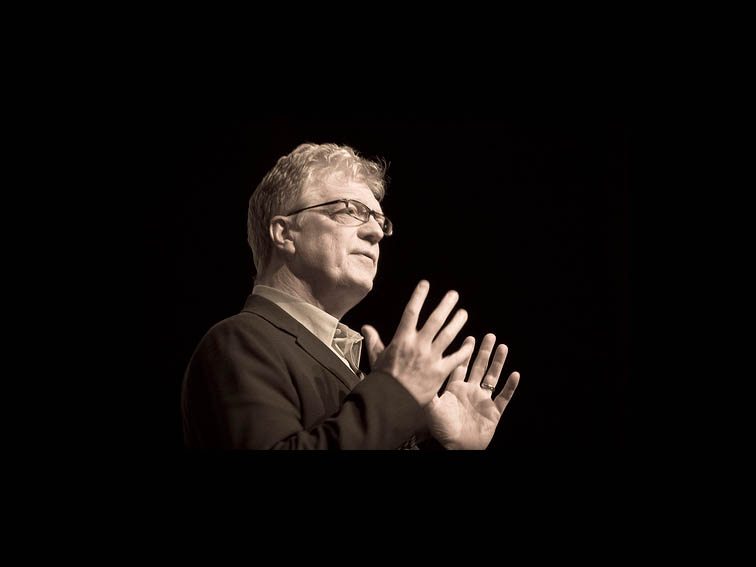10 Videos About New Ways Of Learning
by TeachThought Staff
Like websites and blogs and social media, YouTube gives educators direct access to the latest trends in learning.
Whether Project-Based Learning videos or videos reconsidering learning spaces or even videos demonstrating real-world curiosity and exploration, YouTube is a veritable cinema of education drama, ideas, hyperbole, and thought.
We are all familiar with the typical YouTube video about education–dramatic music, carefully chosen statistics, serious-speaking experts, and a title that ‘sells.’ But while the data in such videos is often unsubstantiated, the themes difficult to follow, and the arguments dominated by pathos, the end result has been constant access to some of the most important new ideas in education, and in a highly-consumable fashion (see also How To YouTube Your Classroom).
Drama sells, and YouTube gives access to billions. That’s a powerful formula. But calling them simply dramatic is missing the point. Each video is an example of exceptionally important thinking in new learning. While some of the videos are longer than others, I encourage you to return to each video over the coming weeks and months to honor each one fully instead of giving them a 15 second skim.
Of course, this is entirely subjective. That’s kind of the point, yes? To start a conversation, share one perspective on what great videos about learning look like, etc. I tried to stay away from data-heavy micro-views and instead focused on what learning is–what it requires, what it implies, and what it looks like in the real world.
The Top 10 Videos About Learning From The YouTube Age
1. Ken Robinson’s ‘Do Schools Kill Creativity?‘
In this now-classic treatise on learning, Ken Robinson eloquently describes a system of education that’s got everything exactly backward. If it didn’t change the way you viewed learning, you were already ahead of the curve.
2. The Original ‘Shift Happens’
One of the original “Shift Happens” videos from 2007 was startling in its facts, heavy on drama, and at times frightening to watch even if it misrepresents reality in spots. Regardless, it wonderfully captured the powerful ways video could explore important issues for a new generation of viewers who wanted their information 90 seconds at a time.
3. Steve Jobs Commencement Address
Steve Jobs’ 2005 Stanford Commencement address was an instant classic, and with themes of self-determined values, personal choice, and the power of dreams, it has immediate relevance for educators and learners alike.
4. Sugata Mitra’s ‘Build A School In The Cloud’
Onstage at TED2013, Sugata Mitra makes his bold TED Prize wish: Help me design the School in the Cloud, a learning lab in India, where children can explore and learn from each other — using resources and mentoring from the cloud. Hear his inspiring vision for Self Organized Learning Environments (SOLE).
5.
This one has some colorful language at the beginning and end, so if you’re easily offended, don’t watch it. But you’d miss out on some rather ‘enthusiastically’ delivered insights on how politics, economics, and education are impossibly intertwined. If formal academia is merely a conditioning process that is only getting more brazen with the adoption of national standards in the United States, and standardized testing does in fact dominate the gravity in public education systems worldwide, we can’t say George Carlin didn’t warn us.
6. Katie Salen On Game-Based Learning
Depaul University professor Katie Salen discusses the role of play in learning: what it looks like, feels like, and how it can transform the way we consider learning processes. Historically, play has been perceived as the opposite of school, making this shift more than a little bit ground-breaking, and Salen discusses it authentically–emotionally and jargon-free.
This is just the trailer to the documentary Two Million Minutes, which looks at the unique approaches to education across the planet by looking through the eyes of students in those countries, and how rigor, pressure, and social expectation affect them. This was one of the earlier videos that looked at education from a global–but human–perspective, putting a face to all the data and rhetoric.
8. An Examined Life
Cornel West discusses how intellectuals have betrayed the poor–and he does so with brutal honesty. This may not be a ‘fun’ video to watch, but spend some time in schools in economically-depressed areas, and then watch it again.
A Vision of Students Today was also from 2007, and it took a similar approach as the rest–dramatic music, a barrage of data, and students giving a face to the issues.
10.
The shift explored here from formal to informal learning is an underrated concept that must be taken seriously by academic institutions and communities and families alike. This isn’t a proposal, but an observation of what’s already happening. How can schools and ‘academic achievement’ be re-thought in light of this reality?
